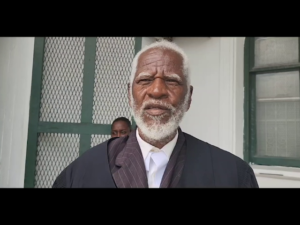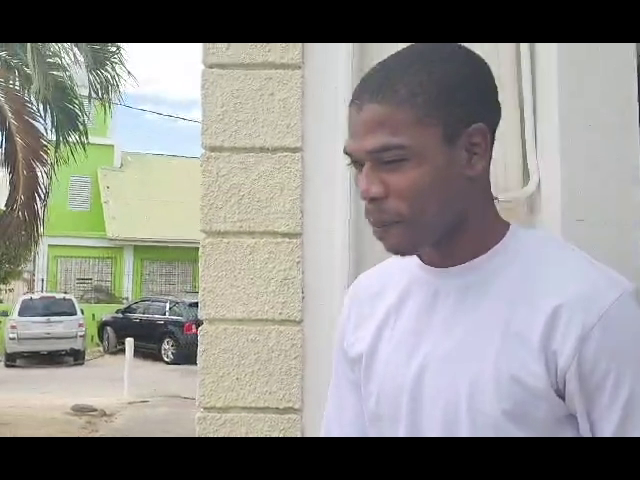Two Men Walk Away from Murder Charges
Two men are free tonight after the prosecution’s murder case against them collapsed in court. Camryn Lozano and Albert Gill, both of Ladyville, were given the benefit of the doubt after the court could find no other piece of evidence to support the victim’s dying declaration. Twenty-two-year-old Egbert Baldwin had told police after he was shot that Gill and Lozano were his killers, but Justice Candace Nanton upheld a no-case submission by their defence attorneys, Senior Counsel, Hubert Elrington and Norman Rodriguez.
Justice Nanton noted in her ruling that the court was unable to conclude that the evidence was reliable, and that the blood found on the slippers was there long before the murder. She further added that while one of the Crown’s witnesses placed one of the accused men in the vicinity of the shooting, it did not necessarily mean he is the shooter. The judge concluded that she could not safely convict the men after careful consideration of another case used as reference. The judge could find no evidence of identification, no evidence of what the lighting conditions were on the night of the shooting; no evidence of a joint enterprise for an exception of the D.N.A., which suggested that two firearms were used. Earlier Justice Nanton went over key elements of the prosecution case in determining whether there was a case before the court. The evidence came from the first responder to the murder, a police officer, Patrick Gennity. He testified that when he arrived at the house where the shooting happened, he recognized the person who had been shot and that the victim named the two accused men as the shooters. The judge also noted that the autopsy report certified that Baldwin was shot from behind. Another witness for the Crown testified that at around seven on the night of the incident, Baldwin went to her house to borrow money and shortly thereafter, she heard about the shooting. The accused men were on remand for almost four years. Attorney Hubert Elrington explained the details of their submission.

Hubert Elrington
Hubert Elrington, Senior Crown Counsel
“This is a case the commission brought relying upon what we like to call the rule in Turnbull’s case. It is a very difficult case. And, very important legal principle. The last time the court was faced with evidence as thin as this against defendants, was in 2012. in the case involving Tybalt and this, is a ruling which lawyers in this jurisdiction are going to rely on for the next hundred or so years. It has developed our law to the point where it needed to be developed so that the D.P.P. within her wisdom be guided. in future when she has these very, difficult decisions to make. Okay, so give us an idea of what those particular elements that made the case reach to this point today that are unfolding. The deceased called the name of the two accused. When asked who shot your hege, he replied that It was the two of Jews calling their names, and he did that about three or four times, but self corroboration is no corroboration in law. Okay. The court had to look for other evidence. Okay. The court said it conducted a meticulous search for even an iota of additional evidence, and it was unable to find anything to come up with it, that if it had found an author of helping evidence, it would have ruled in another way. But this was one of those cases where the court in the following turn had to look for additional evidence, had to find additional evidence. It could not just rely on the statement of the Cicelo’s.”







Facebook Comments